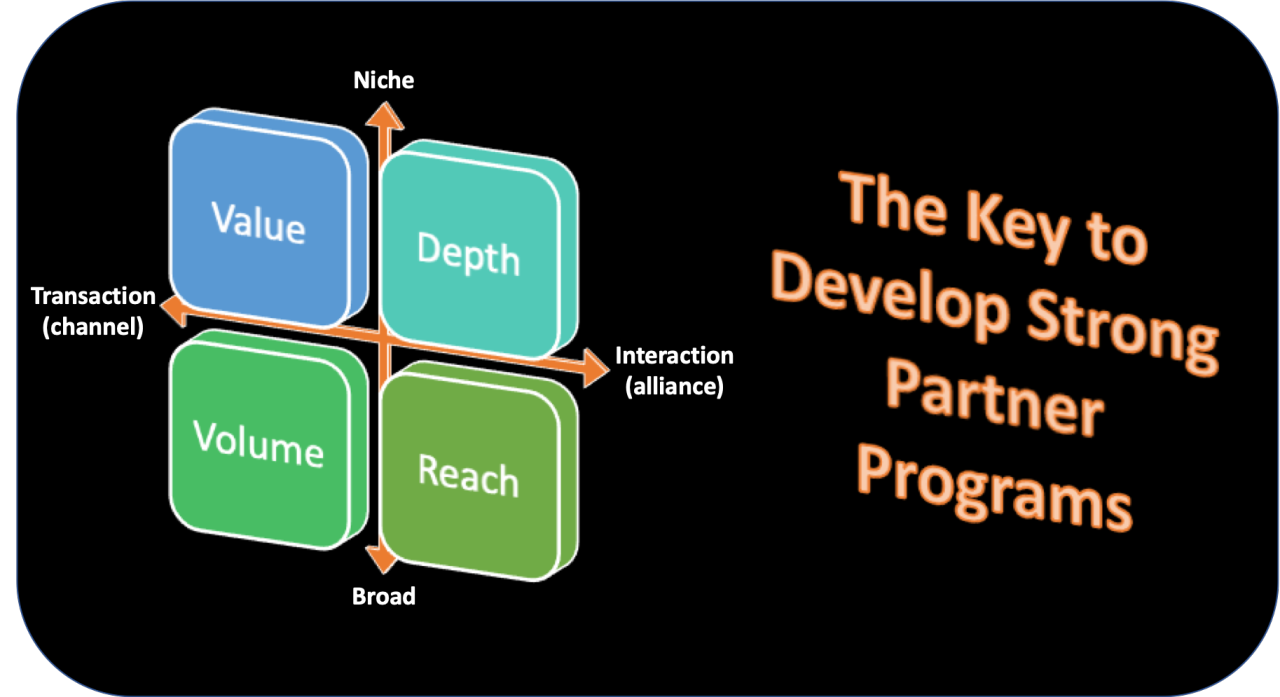Channel Partner Programs
 Anoop Kumar
Anoop Kumar
Over the years, I have had the pleasure of working with different companies helping build a strong partner program and advising startups on building partner programs. I want to highlight some key lessons and the core tenets of building a true partnership. Partner programs are never meant to be stagnant, they are meant to evolve - so start thinking of building the partner programs as a journey rather than a destination.
Partner incentives and plans can differ depending on if they are looking at selling hardware vs. software vs. a SaaS solution. Here are five key components that will help you on your journey for an effective partner program:
Ensure that the program caters to the partner persona: I have seen some companies build partner programs for the sake of building a program. Companies first will need to understand the subtypes of partners before building the program and make sure that they tune the incentives and benefits based on the persona. Partners can be classified into the following categories: a) Resellers, b) Distributors, c) System Integrators, d) Cloud Partners, e) Independent Software vendors (ISVs), f) White labelers (aka OEMs in the hardware world), g) Service Providers (specifically Managed Service Providers): You can again sub classify Service providers into 5 categories, but for this blog, I’ll specifically refer to SPs as Managed Service Providers. Partner programs clearly need to cater benefits to the type of partner and also set the right expectations. What’s more important is to define the metrics for each of the partner types so that you have data points to tweak the program in the long run.
Build in more than just rebates and incentives: Incentives and rebates are a good starting point, but not the only things that attract a partner. Ensure that the program has excellent mechanisms for marketing and lead gen, mechanisms for solution validation and mechanism for partner enablement. Define the program tiers and categorize the partners based on the tiers, which also motivates the partners to move up the tiers by doing more. Build mechanisms for scaling and partner onboarding. The last thing you want to provide is a slow experience to onboard a partner to the program. Also, if you are adding solution validation as part of the partner program, ensure that you have a robust backend mechanism built to handle the solution validation. Again, keep the partner experience in mind. You wouldn’t want to wait for weeks for anything, so why should the partner?
Manage Channel conflicts early and often: Channel conflict is one of the principal reasons partners move away. Channel conflicts mainly occur when there is a direct sales team looking at the same deal, and you purely rely on the field to resolve these conflicts. It’s important that you put clear guidelines and mechanisms to deal with channel conflict as part of the partner program. One thing that needs to be built first is a deal registration process and enforcement of the process. This sometimes will make or break a partner program.
Partner programs should build communities: Partner programs thrive when it builds partner communities. Put in mechanisms and processes that will help upskill partners but also ensure that you are building the right communication forums in Reddit, discord, or wherever your customers and partners are. Provide the opportunity for partners to showcase their solution and also be able to connect to each other.
Keep your customers as the core of any program: This may seem counterintuitive, but the reason you are building a partner program in the first place is to serve your customers. I have seen several partner programs that measure the ‘attach’ rate for services. This is a good metric to track but in isolation, serves no purpose. What’s more important is to make sure that you are building a mechanism to track customer satisfaction as part of the partner program. Just because it's an ‘Indirect route to market’ does not mean that the sales management and teams don’t speak to customers.
Channel Programs are meant to evolve. Ensure that you are listening to your partners and customers and continue to refine the program. Communicate and build a strong feedback loop.
Subscribe to my newsletter
Read articles from Anoop Kumar directly inside your inbox. Subscribe to the newsletter, and don't miss out.
Written by

Anoop Kumar
Anoop Kumar
As the Director of Product and Partnerships at AWS, I’ve led key initiatives across Cloud, AI, and Product Development, driving innovation and significantly boosting AWS revenues. With over 20 years of experience, my journey includes managing Go-To-Market strategies at Cloudera and scaling service provider growth at Hewlett Packard Enterprise, where I developed global programs. I leverage my global GTM experience to build strategic partnerships and foster growth through innovative solutions. I’m passionate about inspiring teams and making transformative impacts in the tech industry.